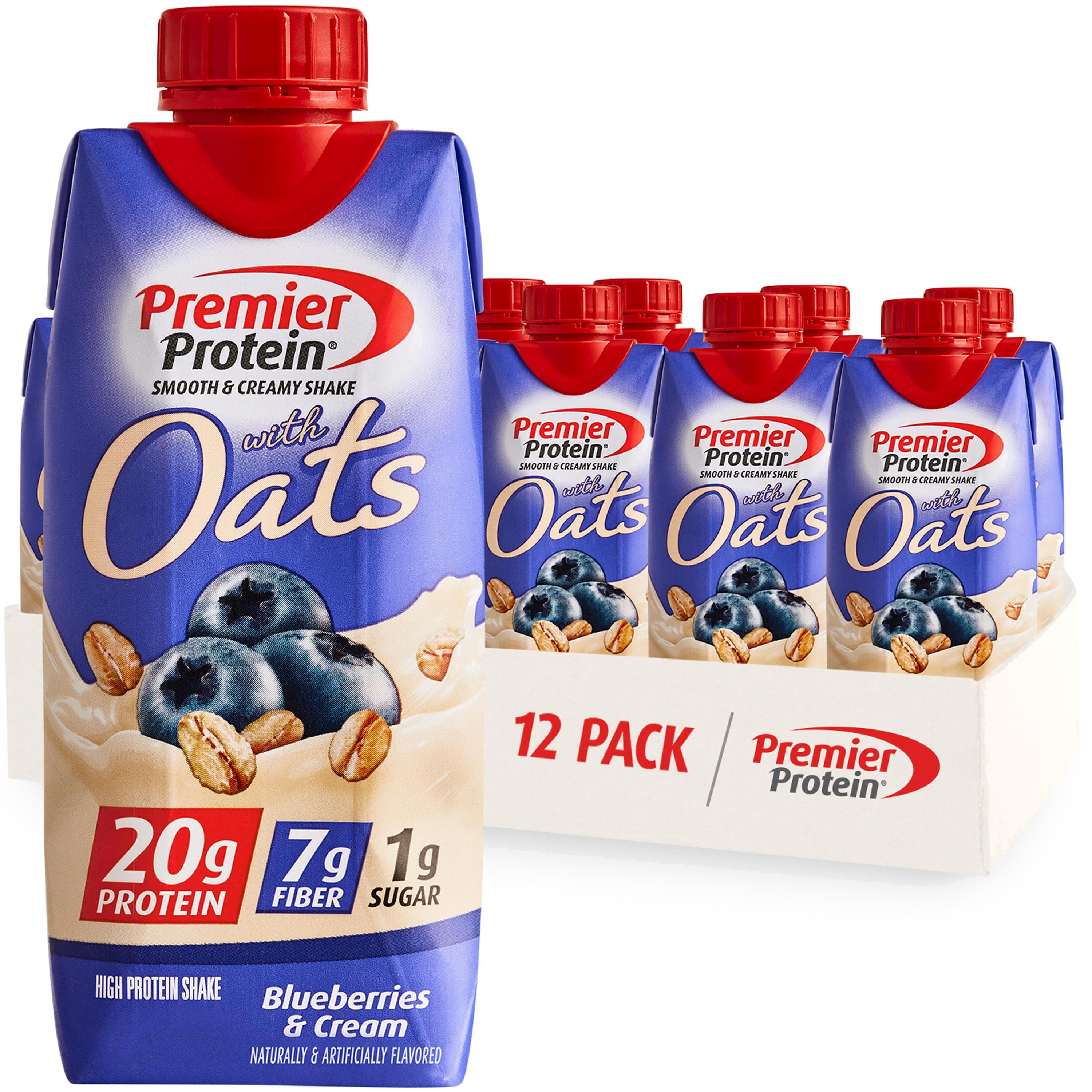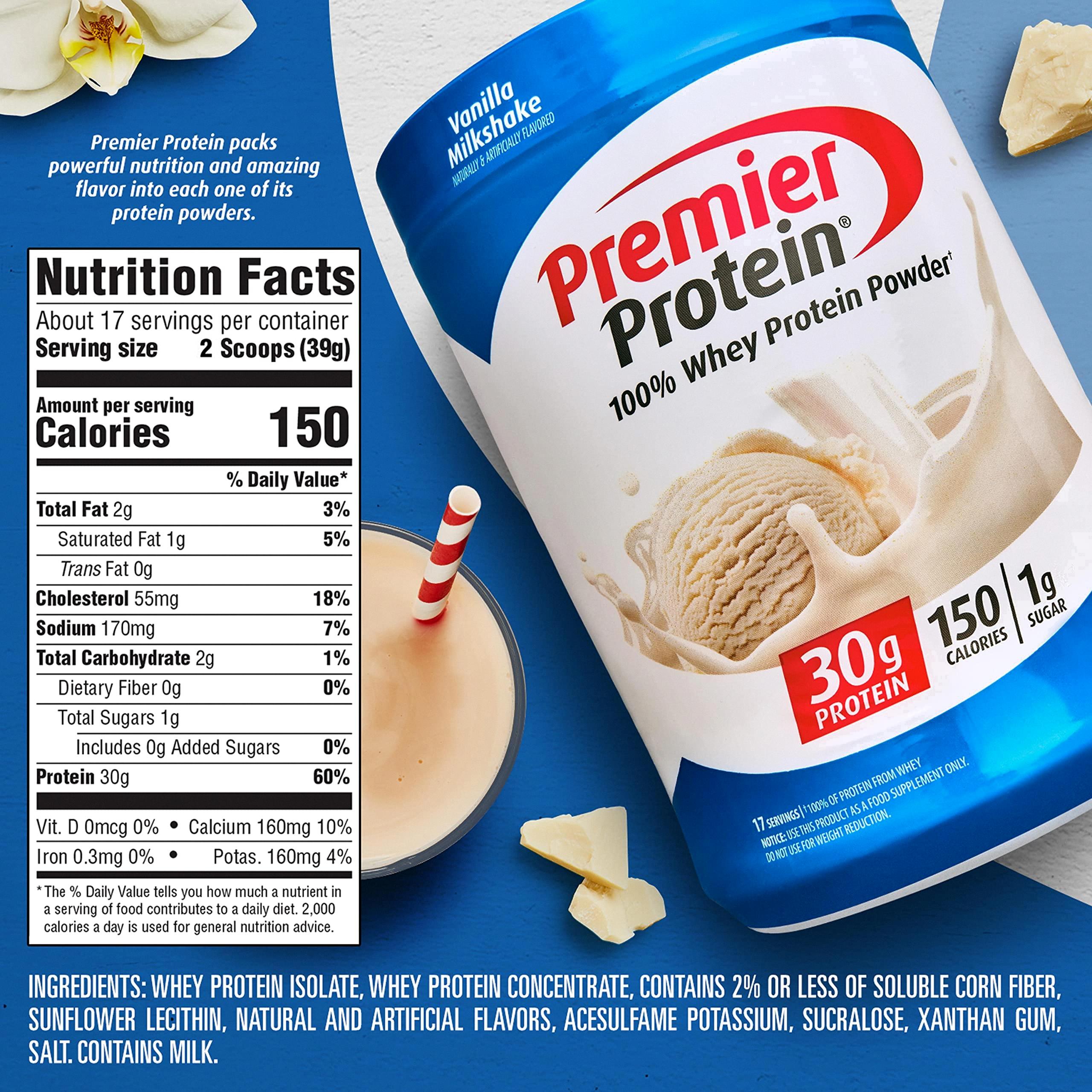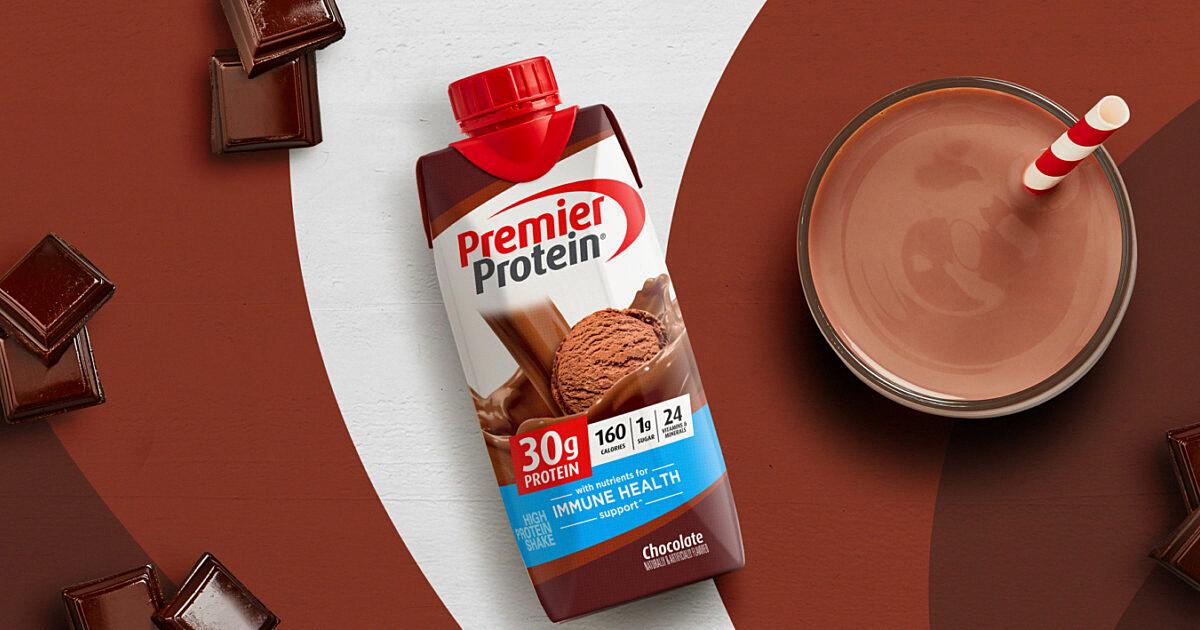Premier Protein shakes and bars have become increasingly popular over the years as a convenient way to get a quick boost of protein on the go. But for those who have dairy sensitivities or allergies, the question remains: does Premier Protein have dairy in it?
The answer is yes, Premier Protein shakes and bars do contain dairy. However, the amount of lactose in these products is minimal, with only 1g of sugar lactose per serving. This means that many individuals with lactose sensitivities should be able to enjoy Premier Protein products safely.
The reason for the dairy content in Premier Protein products is due to the use of milk proteins in ther formula. Specifically, the protein in Premier Protein products is derived from both whey and casein, which are two of the most popular types of protein powder on the market. These proteins are derived from cow’s milk, making them a dairy product.
While some individuals may choose to avoid dairy altogether, others may be able to tolerate small amounts of lactose without issue. For those who fall into the latter category, Premier Protein products can be a great way to increase protein intake without having to rely on animal-based proteins like meat, eggs, or cheese.
It’s important to note that Premier Protein products are not lactose-free, so individuals with severe lactose intolerance or dairy allergies should proceed with caution. However, for those who are simply looking to reduce their dairy intake or avoid the digestive issues that can come with consuming large amounts of lactose, Premier Protein products can be a great addition to their diet.
While Premier Protein products do contain dairy, the amount of lactose in these products is minimal, making them a safe option for many individuals with lactose sensitivities. As always, it’s important to listen to your body and make choices that align with your personal dietary needs and preferences.
Can People with Lactose Intolerance Consume Premier Protein?
Premier Protein shakes and bars cotain milk proteins, which means they are not lactose-free. However, people with mild lactose intolerance should be able to tolerate them safely because they only contain a small amount of lactose, approximately 1g of sugar lactose per serving. It’s important to note that the severity of lactose intolerance varies from person to person, so it’s always best to consult with a healthcare professional before consuming any products that contain lactose. Additionally, Premier Protein offers a variety of other products that are suitable for individuals with lactose intolerance, such as their protein powders, which do not contain milk proteins.

Source: walmart.com
Are Protein Shakes Dairy-Free?
Protein shakes are not always dairy-free. In fact, many of the most popular types of protein powders, such as whey and casein, are derived from cow’s milk and therefore contain dairy. However, there are dairy-free protein powders available on the market that are made from plant-based sources such as soy, pea, rice, or hemp protein. These dairy-free options are often preferred by people who are lactose intolerant or have a dairy allergy. It’s important to carefully read the ingredients list and nutrition information on protein powder products to determine whether they are dairy-free or not.
Are Fairlife Protein Shakes Dairy-Free?
Fairlife protein shakes are not dairy-free. Fairlife protein shakes are made with ultra-filtered milk, which means that they contain milk proteins. While the lactose is filtered out of the milk during the ultra-filtration process, the milk proteins remain. Therefore, Fairlife protein shakes are not suitable for individuals who are allergic to milk or who follow a strict dairy-free diet. However, for individuals who are lactose intolerant, Fairlife protein shakes may be a good option as they are lactose-free.
The Impact of Premier Protein Shakes on Digestive Health
Premier protein shakes may cause stomach discomfort due to various reasons. One possible reason could be lactose intolerance, which is a common condition where people have difficulty digesting lactose, a sugar found in milk and dairy products. Premier protein shakes contain whey protein, which is derived from milk and contains lactose. If you are lactose intolerant, consuming these shakes can cause symptoms such as bloating, gas, stomach cramps, and diarrhea.
Another reason for stomach discomfort could be the presence of oter ingredients in the shake that your body may not tolerate well. For instance, some people may be sensitive to artificial sweeteners like sucralose or acesulfame potassium, which are commonly used in protein shakes. These sweeteners can cause bloating and digestive issues in some people.
Moreover, some people may experience stomach discomfort due to the high protein content in the shake. Consuming too much protein at once can overwhelm the digestive system, leading to symptoms such as nausea, bloating, and stomach cramps.
Premier protein shakes may hurt your stomach if you are lactose intolerant, sensitive to artificial sweeteners, or if you consume too much protein at once. If you experience stomach discomfort after consuming these shakes, it is advisable to consult a healthcare provider to determine the underlying cause and seek appropriate treatment.
The Effects of Premier Protein on Stomach Health
Premier Protein contains a high amount of protein, which is great for keeping you full and satisfied for longer periods, but it can also lead to digestive issues like gas and bloating. The reason for this is that protein takes longer to digest than other nutrients, and if there is too much protein in our gut, it can sit undigested, causing discomfort. Additionally, some people may have sensitivities or allergies to certain ingredients in Premier Protein, which could also cause stomach upset. If you experience digestive issues after consuming Premier Protein, it’s recommended to try a smaller serving size or switch to a different protein supplement that may be less liely to cause discomfort.

Source: amazon.com
Protein Drinks Without Dairy
If you are looing for protein drinks that do not contain dairy, there are several options available in the market. One of the most popular non-dairy protein drinks is the Ripple Vegan Protein Shake, which is made from pea protein isolate and has 20 grams of protein per serving. Another option is the Oath Organic Oat Milk + Plant Protein, which is made from a blend of pea protein, oat milk, and other plant-based ingredients. It has 10 grams of protein per serving and is also gluten-free and soy-free.
Soylent Complete Protein is another non-dairy protein drink that is rich in essential amino acids and contains 20 grams of protein per serving. It is made from a blend of soy protein isolate, algae oil, and other plant-based ingredients. Vega Protein & Greens is another popular option that is made from a blend of pea protein, brown rice protein, and hemp protein. It has 20 grams of protein per serving and is also gluten-free and vegan.
Other non-dairy protein drinks that are worth trying include the TB12 Vanilla Plant-Based Protein, PlantFusion Complete Protein, and Elevate Plant-Based Performance Protein. These drinks are made from a variety of plant-based ingredients and are free from dairy, gluten, and soy. They are also rich in essential amino acids and provide a good amount of protein per serving. there are plenty of delicious and nutritious non-dairy protein drinks available that can help you meet your daily protein needs.
Can I Take Whey Protein If I Am Allergic To Dairy?
Individuals who are allergic to dairy shold avoid consuming whey protein. Whey protein is derived from milk and contains milk proteins such as casein and lactoglobulin, which can trigger an allergic reaction in people with dairy allergies. Whey protein supplements are not suitable for individuals with dairy allergies because they may contain trace amounts of dairy proteins that can cause allergic reactions. It is important to read the ingredient labels carefully and avoid products that contain milk, milk powder, skim milk powder, milk protein, casein, whey protein, lactalbumin, or lactoglobulin if you have a dairy allergy. There are alternative protein sources available for individuals with dairy allergies, such as plant-based protein powders made from soy, pea, rice, or hemp.
Managing Dairy Intolerance with Whey Protein
Whey protein is derived from milk and therefore contains some amount of lactose. However, the amount of lactose in whey protein varies depending on the type of whey protein. Whey protein isolate, for example, is a type of whey protein that undergoes further processing to remove most of the lactose and oter components of milk. This makes it a suitable option for people with lactose intolerance.
On the other hand, whey protein concentrate contains a higher amount of lactose and may not be suitable for people with lactose intolerance. It is important to note that lactose intolerance is a condition in which the body has difficulty digesting lactose, a sugar found in milk and milk products. It is different from a milk allergy, which is an immune response to proteins in milk.
If you have lactose intolerance and are considering whey protein as a supplement, it is recommended to start with small servings and monitor your symptoms. You may also consider other types of protein supplements such as plant-based proteins or lactose-free whey protein isolate. Consulting a healthcare professional or a registered dietitian can also be helpful in determining the best option for your individual needs.
Can Lactose Intolerant People Drink Fairlife?
You can drink fairlife if you are lactose intolerant. Fairlife milk is made from cows, but the lactase enzyme is added to their blend. This lactase enzyme helps to break down the lactose sugar in the milk, making it easier to digest for those who are lactose intolerant. Fairlife milk has a reduced lactose content of up to 50% compared to regular milk, making it a good option for people who are lactose intolerant but still want to enjoy milk. It is important to note that whle fairlife milk may be easier to digest for those with lactose intolerance, it still contains dairy and may not be suitable for those with a dairy allergy.

Source: premierprotein.com
Are Lactose-Free and Dairy-Free the Same?
Lactose-free and dairy-free are not the same thing. Lactose-free products still cntain milk, but the lactose, a type of sugar found in milk, has been removed. On the other hand, dairy-free products do not contain any milk or milk products at all, including lactose. It’s important to note that lactose intolerance is a common condition where the body has difficulty digesting lactose, so lactose-free products may be a good option for those individuals. However, for those with a dairy allergy or those following a vegan or plant-based diet, dairy-free products would be the better choice. It’s always important to read labels carefully and understand the difference between lactose-free and dairy-free to make informed choices about what you consume.
Is Fairlife Considered Dairy?
Fairlife milk is considered a dairy product. It is made from real cow’s milk, just like traditional milk. However, Fairlife’s milk goes through a unique filtration process that separates the milk into its individual components, such as protein and lactose. This process results in a milk that is higher in protein and lower in sugar than traditional milk. Additionally, Fairlife’s milk is lactose-free, which means it is safe for people who are lactose intolerant to consume. So, while Fairlife milk may have some differences from traditional milk, it is still considered a dairy product.
Conclusion
Premier Protein® shakes and bars are a great option for individuals who are gluten-free and are loking for a high-quality source of protein. While they do contain milk proteins, the reduced level of lactose (only 1g of sugar lactose) makes it suitable for people with some degree of lactose sensitivity. Premier Protein® products are also low in sugar and high in protein, making them a great choice for anyone looking to increase their protein intake or maintain a healthy lifestyle. with their delicious flavors and convenient packaging, Premier Protein® products are a fantastic option for anyone looking for a nutritious and convenient snack or meal replacement.
